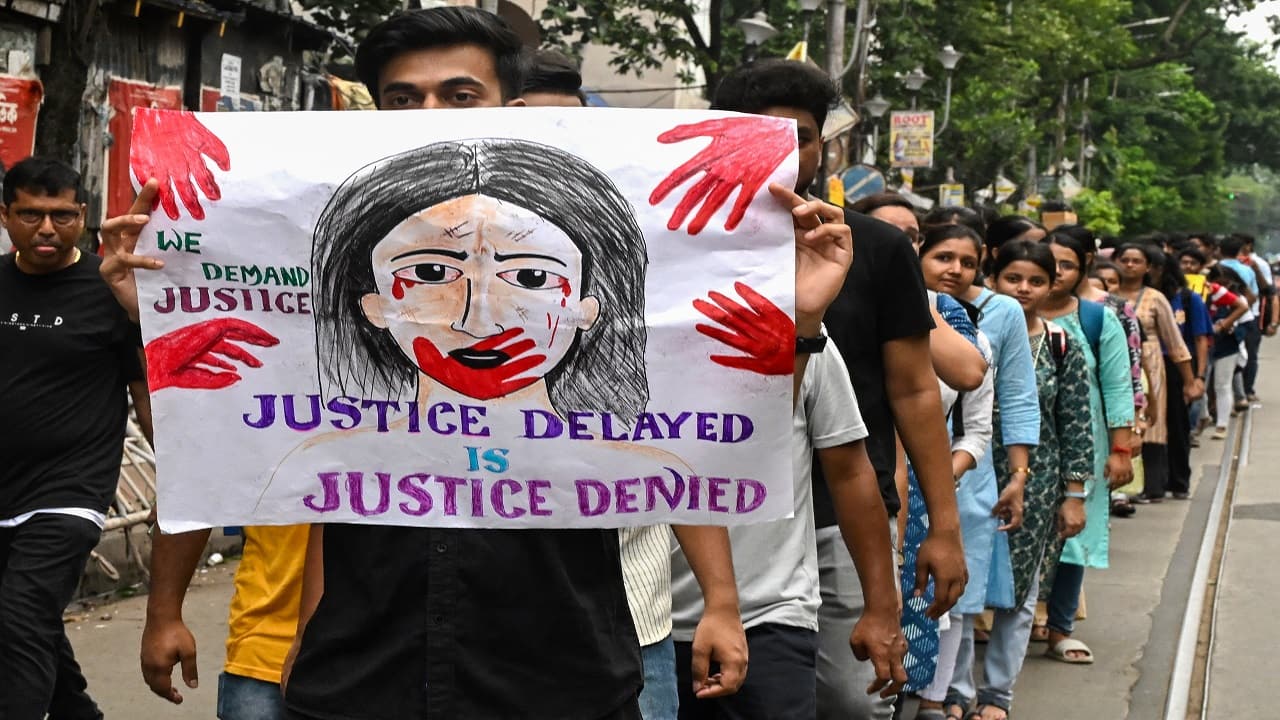Nationwide Doctors take the Streets After the Tragic Death of 31-Year-Old Trainee Medic:
Doctors across India have come together in response to the tragic rape and murder of a 31-year-old trainee medic in Kolkata. The victim’s death has sparked a nationwide protest that has significantly disrupted hospital services, highlighting critical issues around security and working conditions in the healthcare sector.
On Monday, thousands of doctors rallied in Kolkata, the capital of West Bengal, and throughout the state. They gathered to advocate for justice for their colleague, whose body was discovered at the RG Kar Medical College and Hospital on Friday wherein an autopsy revealed the truth of being sexually assaulted before her death.

In Maharashtra, home to Mumbai, over 8,000 government doctors ceased elective services across all hospital departments, maintaining only emergency care. On this, the Federation of Resident Doctors Association, which represents thousands of medical professionals, initiated a nationwide halt of elective services, aiming to draw attention to the urgent need for improved safety and support for doctors. Emergency services in Kolkata have also been notably impacted, with state officials assessing the situation’s implications for public health.
In the national capital of New Delhi, junior doctors made their voices heard outside a prominent government hospital, holding signs that read, “Doctors are not punching bags.” Their protest reflects widespread concern about the conditions faced by medical professionals, including violence and inadequate support.
The protests have resonated across India, with similar demonstrations observed in cities such as Lucknow and Goa. The Indian Medical Association (IMA) has communicated their concerns to Health Minister JP Nadda, stressing the necessity for a secure working environment. The IMA’s call for the installation of CCTV cameras and improved safety protocols in hospitals highlights their commitment to safeguarding medical staff.

In response to the outcry, the Kolkata High Court has ordered the transfer of the investigation to the Central Bureau of Investigation, signaling a commitment to a thorough and high-priority inquiry. Additionally, the National Medical Commission has mandated that medical institutions enhance security measures, including the installation of CCTV cameras and improved lighting.
While the immediate focus is on securing justice for the Kolkata medic, the broader call for systemic improvements reflects a vital conversation about the working conditions and safety of healthcare professionals.
Recent update in the case:
- Amid the widespread protests over the murder and rape of an on-duty doctor, the Medical Student Association of Government Medical College Amritsar has announced an indefinite strike starting from August 16.
- People are putting their social media stories to show support
- The Federation of Resident Doctors Association (FORDA) has called for a nationwide suspension of elective services in hospitals beginning on Monday. Elective services refer to medical treatments that can be postponed or are not considered medically necessary.
What Happened in Kolkata?

On August 9, the body of a 31-year-old trainee doctor, bearing multiple injuries, was discovered in a government teaching hospital in Kolkata.
According to lawyer and women’s rights activist Vrinda Grover, the victim’s parents were initially informed by hospital authorities that their daughter had committed suicide. However, an autopsy later confirmed that she had been raped and murdered.
Local media reported that police have arrested Sanjoy Roy, a civic volunteer who frequently visited the hospital. He had unrestricted access to the ward, and the police found compelling evidence against him.
The victim’s parents informed the court that they suspected it was a case of gang rape, according to local media reports.














